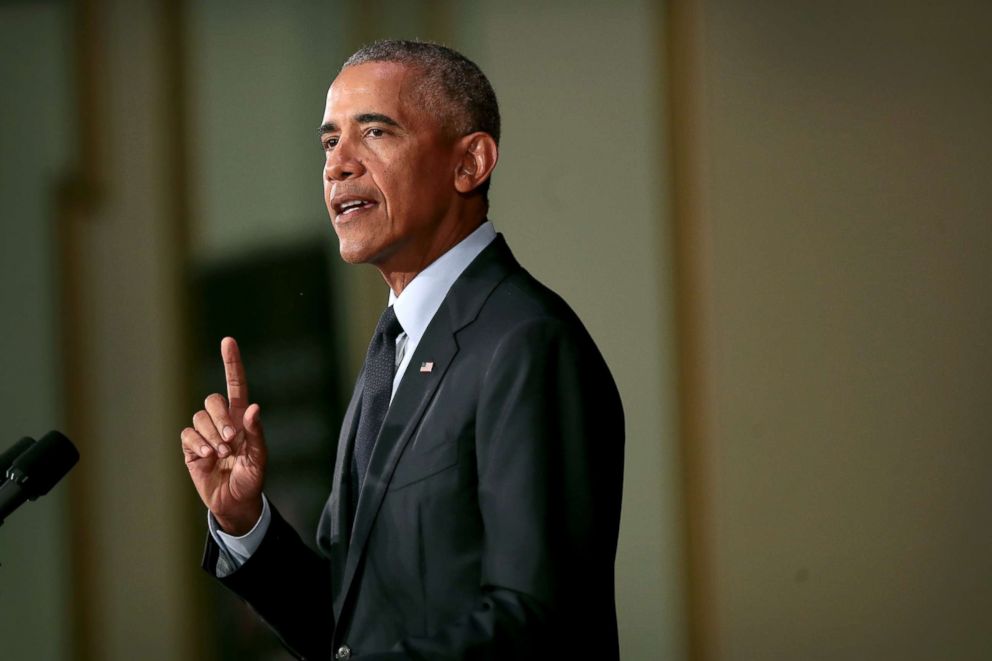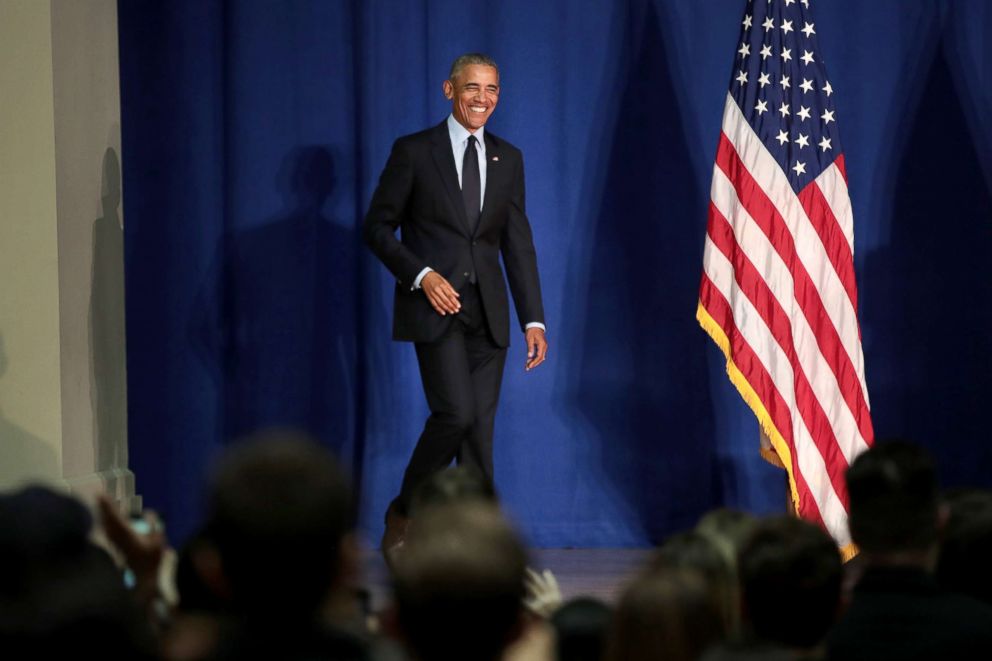What experts say Obama's return to the political fray could mean to the midterms
Experts weigh in on Obama's fiery speech about Trump.
Former President Barack Obama broke his relatively quiet post-presidential routine with a searing speech against his successor recently and he's expected to do so again Thursday, as he hits the midterm campaign trail.
President Donald Trump may have dismissed his predecessor's return to the spotlight by saying that he "fell asleep" while trying to watch the speech, but Obama is likely trying to wake others up with the call to action, experts said.
In his speech at the University of Illinois at Urbana-Champaign on Friday Sept. 7, Obama slammed Trump by name, saying that he is "just capitalizing on resentments that politicians have been fanning for years" and criticized Trump's handling of the violent rally in Charlottesville in 2017.
"We're supposed to stand up to discrimination. And we're sure as heck supposed to stand up, clearly and unequivocally, to Nazi sympathizers. How hard can that be? Saying that Nazis are bad?" Obama said, referencing one of Trump's early responses to the Charlottesville violence, wherein Trump said there were "very fine people on both sides" of the protest.

Even Obama noted that it was unusual for an ex-president to be wading into the fray, saying that he "was also intent on following a wise American tradition of ex-presidents gracefully exiting the political stage, making room for new voices and new ideas."
In his words, he was speaking as "a fellow citizen, not as an ex-president, but as a fellow citizen" urging others to vote in the upcoming midterm elections "because our democracy depends on it."
ABC News political analyst Matthew Dowd said that Obama's reluctance to speak was clear in the speech.
"You can tell in the manner in which he first spoke the other day, this wasn't something he was all gung-ho about," Dowd said.
"I think he realized because of the circumstances and because of his concern for the Constitution, the office [of the president], ... democracy, the reluctance for Republicans to hold [Trump] accountable, I don't think [Obama] felt like he had a choice and he thought this was his duty to speak out," Dowd said.
Jim Campbell, a political science professor at the University at Buffalo who has written a book about political polarization, said that it was "very much a speech written to the Democratic base, to boost up turnout of younger liberal Democrats."

Dowd concurred, saying that Obama's speeches may not be targeted at persuading new voters, but "it can continue to solidify the anti-Trump vote which has grown more passionate and bigger."
Intentionally or unintentionally, the battle of the personalities of the two presidents is presented as Obama re-emerges on the political stage, but Campbell doesn't think it was purposefully planned to irritate Trump.
"Getting under Trump's skin is not much of a challenge, so I don't know how much that plays into what former President Obama is doing. I think it's more about claiming some credit for himself in all of this," Campbell said.
"I think primarily there's a political motive here and that's for liberal Democrats to regain the House and be able to more successfully block, perhaps overturn Trump's agenda," he said.
There is another subset of the voting population that could be swayed by Obama's appearances, however, experts said.
John Hudak, a senior fellow at the Brookings Institution, argues that there are some voters in the middle of the two establishment bases who could be ready to be swayed.
"There are a lot of people for whom President Obama will have no effect. There are a lot of people who dislike President Obama and will not respond well, and there were a lot of people who love President Obama who probably would have turned out anyways, but in the middle there are moderates and independent voters many of whom voted for President Obama and decided to give Trump a chance, and for President Obama, he is communicating to those voters a very simple question, and that question is 'Do you like what you have now more than you liked what you had before?'" Hudak said.
The difference between Obama's speech on Friday and his speech today is that he's ramping up the political nature, experts said. Obama is set to appear on the campaign trail in Ohio on behalf of Democratic gubernatorial candidate Richard Cordray, just 53 days before the midterms.
"I think that President Obama is feeling a real urgency in the need to have someone," Hudak said, referring to Obama, "who can command national level attention essentially compete with the president."




